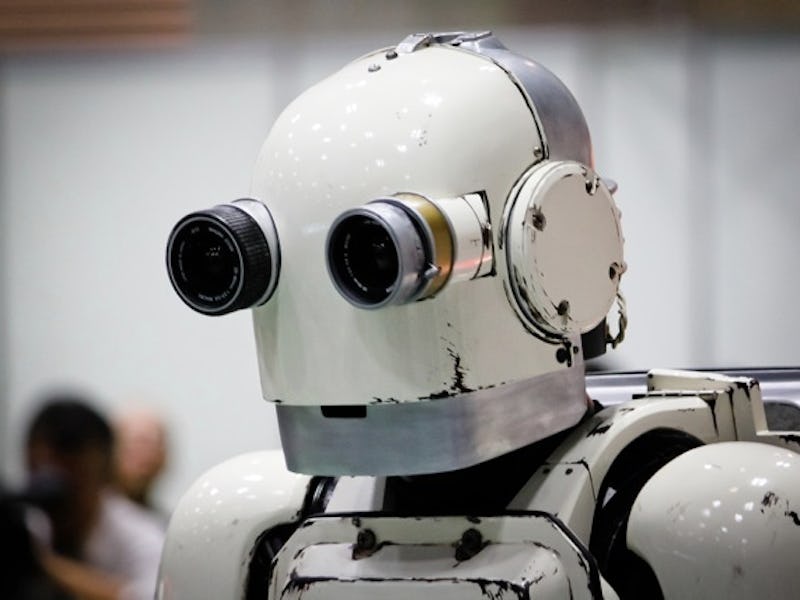Can We Trust Our Artificially Intelligent Robot Assistants to Not Make Sex Tapes?
What do you get when you cross pattern recognition, nudity, and cloud storage?

Much to the consternation of Stephen Hawking and Elon Musk, we’re at the dawn of the age of artificial intelligence. The risk? Technological progress may outpace cultural progress to a detrimental degree. But not all the concerns about A.I. are philosophical or abstract in nature. As it happens, we’re also at the dawn of the consumer robot age — which means we’re welcoming new programs into our homes without necessarily understanding how they interact with us, and to what degree they may compromise our privacy.
Artificially intelligent robots present a host of potential issues. This week, the United Nations is meeting to determine whether Lethal Autonomous Weapons Systems should be preemptively banned. Scholars have long entertained concerns that such A.I.s might decide to erase humans from the planet. But what about the robots of today, the ones that are just starting to serve us and interact with us in meaningful ways? The issues they represent are more practical, and more informed by our own behavior. We tend to treat dog-shaped robots like dogs, but dog-shaped robots aren’t dogs. They don’t see the world through canine eyes; they see the world through sensors. They record.
Most A.I. systems use pattern recognition. We feed massive amounts of data into these systems in the form of, for instance, photographs — and they learn what a cat looks like. Or they learn what a license plate looks like; or they learn what your face looks like. In the not-too-distant future, this is very likely how the A.I. inside your robot assistant will work as well, recognizing your mood and needs and wants — getting to know the patterns that make you, consistently, you.
Your robot buddy is eventually going to have a database that will allow it to draw conclusions about what is you — and what is not you, by extension. Let’s not dance around this: Your appliance is going to take naked pictures of you. And that’s potentially okay, but it’s definitely worthy of consideration because privacy has a tendency to erode quickly — and you won’t necessarily own the information your robot imbibes.
Will government agencies be able to access consumer A.I.s? (If current events are indicative, expect the same people who wanted to hack the iPhone to be eager to hack robots.) What will happen if you get hacked? To what degree can these things be encrypted? These are all questions that demand answers before we disrobe in front of our beeping, booping new friends. And then there’s the question about what constitutes a reasonable expectation of privacy.
The phrase “reasonable expectation of privacy” is linked to the Fourth Amendment in the same way the phrase “I’ll be back” is linked to the Terminator franchise. In essence, it dictates the applicability of the law guaranteeing “the right of the people to be secure in their persons, houses, papers, and effects.” Given that the Supreme Court has always treated American homes as more or less sacrosanct, it seems likely that there’s nothing to fear from the government (unless you give law enforcement probable cause). For civilians, privacy laws have traditionally done a pretty good job of protecting Americans from invasive or inappropriate photography or recordings. That does not mean, however, that recordings don’t go public.
The recent trial over a sex tape showing Hulk Hogan served to illustrate juries’ distaste for incursions of private property and into private affairs — but also as a reminder that the market for sexual imagery is pretty much unlimited. Whether or not you believe information wants to be free, it’s clear that naked pictures do, which is a problem for A.I. Put the images in the cloud and you’ve got a massive hacking target. Don’t put them in the cloud and you better bet people are going to steel robots. Encryption is the logical solution, but how is that going for Apple, again?
It’s easy to get lost in the larger ramifications of artificial intelligence and robo-assistance, but sometimes it’s worth considering the domestic conundrums new technologies pose. What matters more to us: walking around our homes in the buff altogether or never having to make toast again? It won’t be quite as cut and dry as that, but there will be trade offs. There always are.